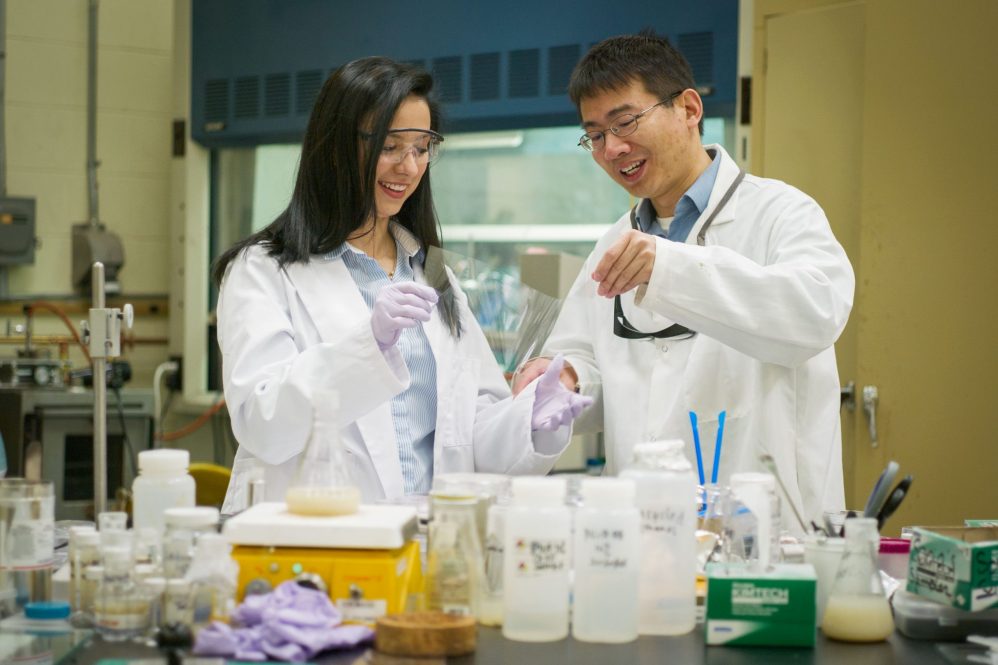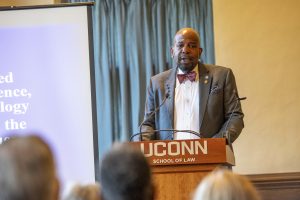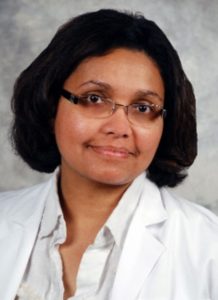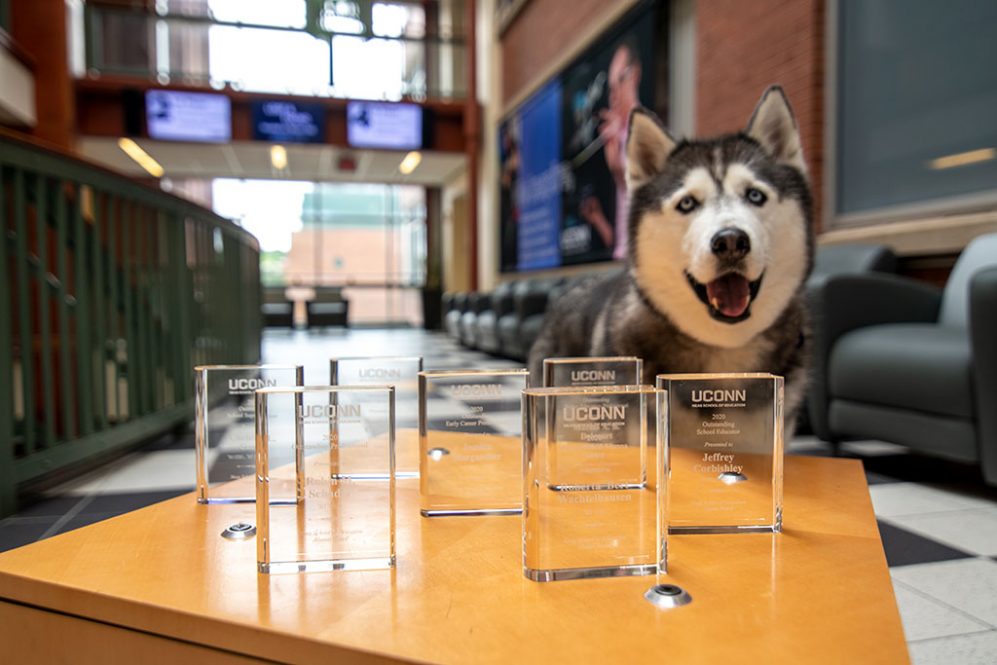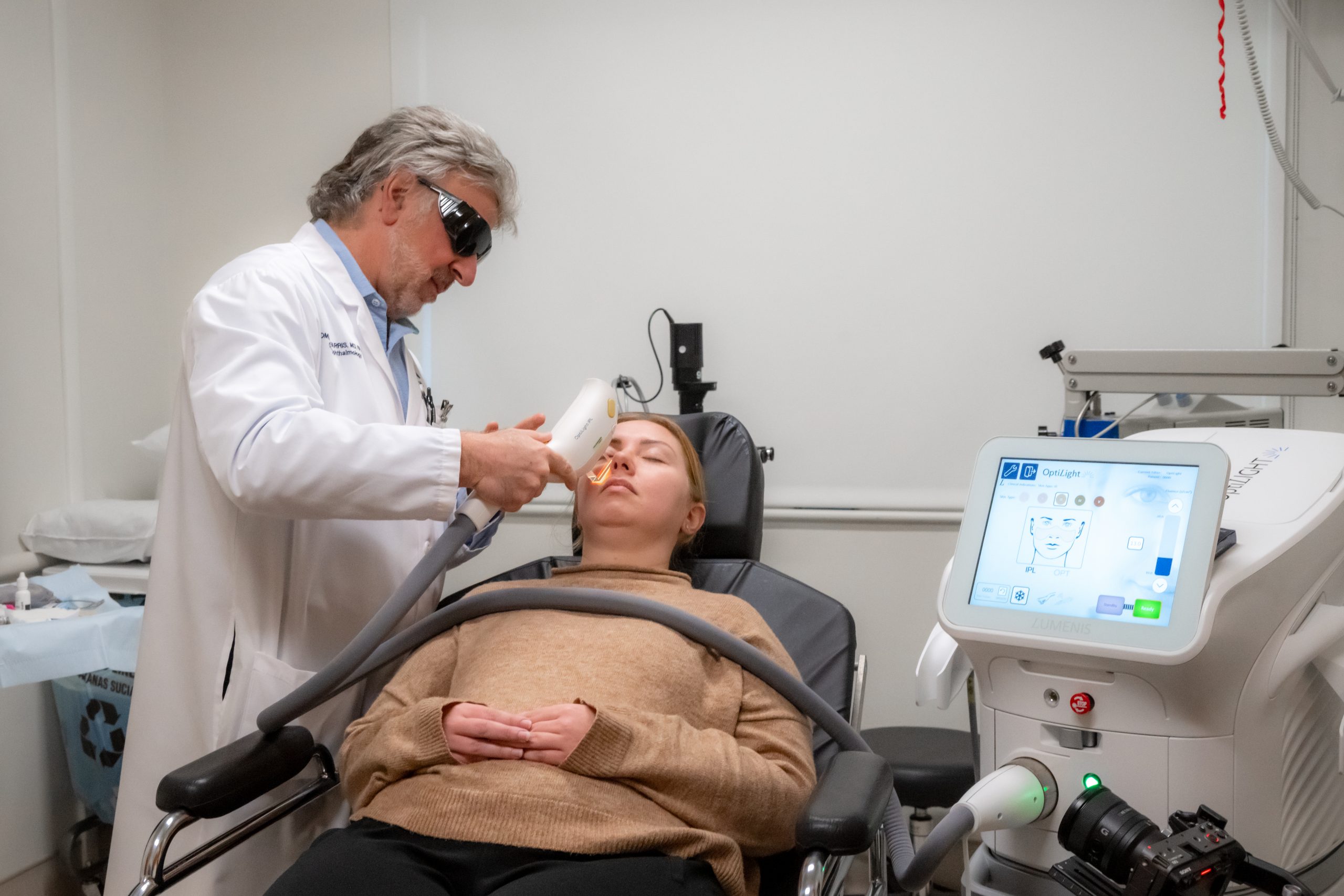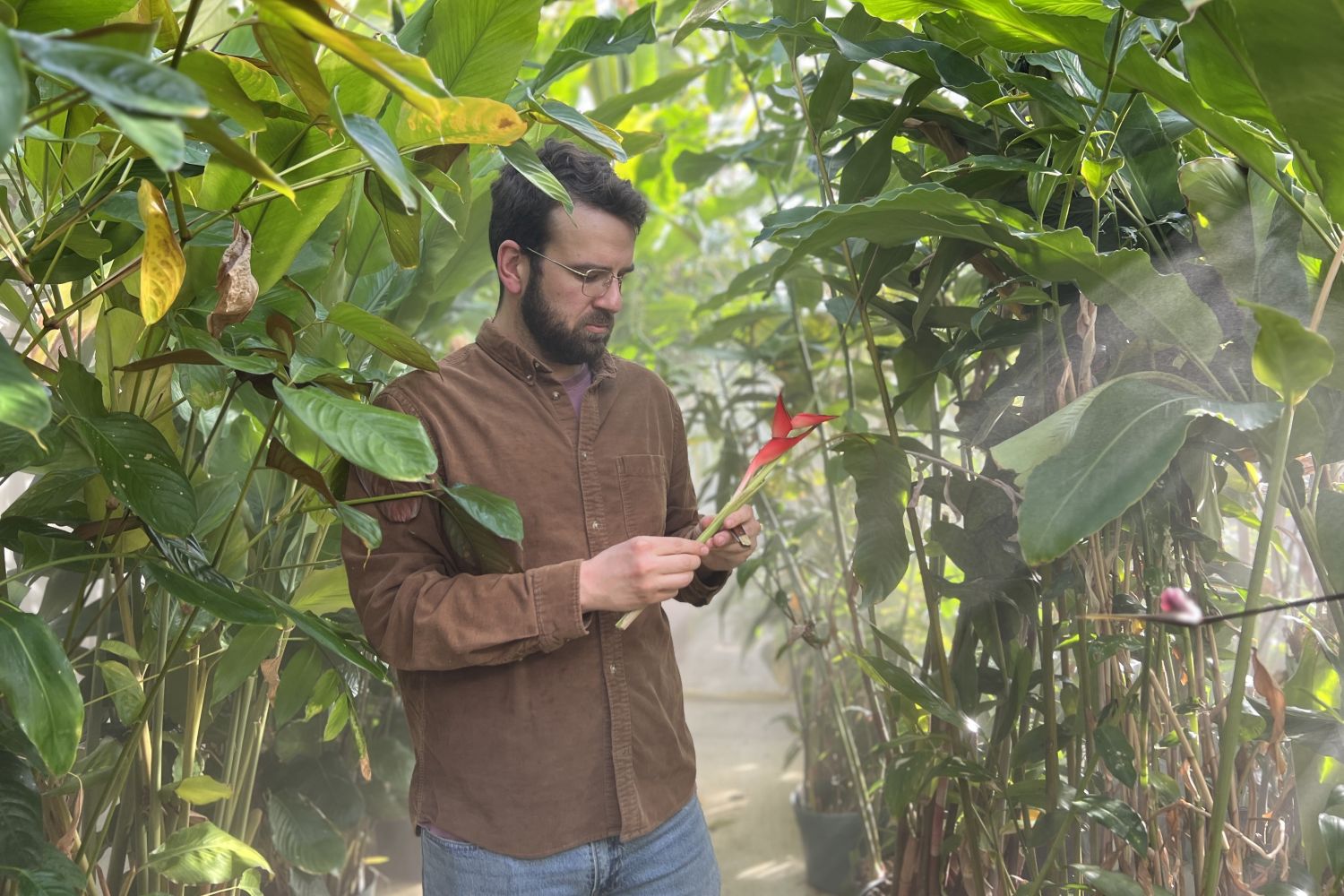For people diagnosed with Atrial fibrillation, commonly known as AFib, the upper chambers of the heart beat rapidly and irregularly, leading to poor blood flow. This can cause an increased risk of stroke, chronic fatigue, or heart failure.
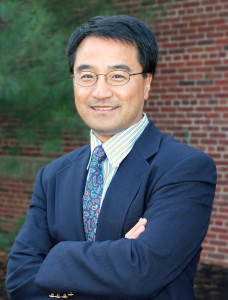
Professor of Biomedical Engineering Ki Chon has devoted his entire career at UConn developing advanced computational methods—or algorithms—that can improve accurate detection of AFib and other heart diseases. He holds multiple patents for these algorithms, which help monitor heart activity in smartwatches and other wearable devices.
For his life-saving innovations, Chon, who’s also a Board of Trustees Distinguished Professor and Krenicki Chair Professor, is recognized as a National Academy of Inventors (NAI) Fellow. He’s among 13 academic inventors at UConn “who have demonstrated a prolific spirit of innovation in creating or facilitating outstanding inventions that have made a tangible impact on quality of life, economic development and the welfare of society.”
Election to NAI Fellow status is the highest professional distinction accorded solely to academic inventors.
Chon and eight other UConn NAI Fellows are affiliated with the College of Engineering, including:
- UConn’s 17th and current President Radenka Maric, Board of Trustees Distinguished Professor and Chair Professor in Sustainable Energy in Chemical and Biomolecular Engineering and Materials Science and Engineering, earned the NAI Fellowship in 2019. Maric has significantly advanced understanding of materials and catalysts and has developed innovative manufacturing processes involved in fuel cell technologies, storage materials, and electrochemical sensors for health applications, leading to higher-performance, commercially viable clean energy systems. She also has six issued patents and 11 published patent disclosures.
- Ji-Cheng “JC” Zhao, dean of the College of Engineering and professor of materials science and engineering, received the NAI Fellowship in 2022. Zhao’s research focuses are on design of advanced alloys and coatings, additive manufacturing (3D printing) of alloys and composites, high-throughput materials science methodologies, determination of phase diagrams and other materials properties, computational thermodynamics and kinetics, and also hydrogen/energy storage materials. In addition to many materials innovations, he pioneered the development of a diffusion-multiple approach and co-developed several materials property microscopy tools for accelerated materials discovery and development. Zhao has 49 patents covering a wide range of materials, processes, and systems.
- Dr. Cato Laurencin, Albert and Wilda Van Dusen Distinguished Professor of Orthopaedic Surgery, professor of chemical and biomolecular engineering, professor of materials science and engineering, and professor of biomedical engineering, received the Fellowship in 2013 and was the first UConn faculty to become a NAI Fellow. He’s also a current member of the NAI’s Board of Directors and president of UConn’s NAI chapter. He has received the Connecticut Medal of Technology and Innovation, and the National Medal of Technology and Innovation in ceremonies at the White House. As Chief Executive Officer of the Cato T. Laurencin Institute on Regenerative Engineering and a practicing sports medicine and shoulder surgeon, Dr. Laurencin is known for being the pioneer of the field of regenerative engineering. He’s also produced seminal research and technologies on nanotechnology and tissue regeneration, polymer chemistry and polymeric materials science and engineering.

Dr. Cato Laurencin is currently a member of the national selection committee for the National Academy of Inventors and serves as a resource to individuals interested in becoming Fellows at UConn. (Sean Flynn/UConn Photo) - Luyi Sun, professor of chemical and biomolecular engineering, was awarded the Fellowship in 2021. Sun studies polymeric materials, ceramics and glasses, and composites with a focus on designing materials with unique structure for specific applications, such as packaging, energy, or catalysis.
- Bahram Javidi, Board of Trustees Distinguished Professor and SNET Endowed Chair Professor of Electrical and Computer Engineering, received the NAI Fellowship in 2018. Javidi’s inventions are in a broad range of transformative imaging approaches using optics and photonics. He has made seminal inventions in passive and active multi-dimensional imaging from nano to micro and macro scales. His inventions include advanced 3D displays, 3D augmented reality devices, underwater sensing and imaging, multi-dimensional object recognition and classification, optics for security and authentication systems, field portable bio-sensors for automated disease identification, among others.
- UConn’s 16th President Tom Katsouleas, professor of electrical and computer engineering, was named a NAI Fellow in 2020. He invented the Surfatron accelerator that uses electromagnetic waves to accelerate charged particles.
- Steven Suib, director of the Institute of Materials Science, Board of Trustees Distinguished Professor of Chemistry and graduate faculty member in Materials Science and Engineering, received the Fellowship in 2017. Suib, an inventor, holds more than 90 patents in the field of materials science, of which three are licensed. These patents are primarily for the synthesis of new compositions of matter of catalysts, ceramics, batteries, semiconductors, and other materials.
- Lakshmi Nair, from UConn Health, received her Fellowship in 2016. She is an associate professor of orthopedic surgery and is also on the graduate faculty for Materials Science and Engineering Department. Nair studies biomaterial design and synthesis, protein and small molecule delivery, and using matrices to help with tissue regeneration.

Lakshmi Nair, who serves on the graduate faculty for the Materials Science and Engineering Department, is vice president of UConn’s NAI Chapter.
Other UConn faculty who are NAI Fellows include:
Guillermo Risatti, from the College of Agriculture, Health and Natural Resources, is UConn’s most recent NAI Fellow. He received the award in 2024. Risatti, professor of pathobiology and veterinary science and director of UConn’s Connecticut Veterinary Diagnostic Medical Laboratory, was nominated to the NAI in recognition of his pioneering work in veterinary vaccine research. Most recently, he was a lead inventor on a new vaccine for African swine fever. Risatti currently holds 19 patents, all in the realm of veterinary vaccines.
Dr. Se-Jin Lee, from UConn Health, earned the NAI Fellowship in 2015. Dr. Lee, Presidential Distinguished Professor of Genetics and Genome Sciences and a joint faculty appointment with The Jackson Laboratory for Genomic Medicine, is an expert on reproductive health, particularly how various growth factors and signaling pathways impact health, aging, and disease.
Dr. Pramod Srivastava from UConn Health, was named a Fellow in 2015. Dr. Srivastava, professor of immunology and the Eversource Energy Chair in Experimental Oncology, also served as director of the Carole and Ray Neag Comprehensive Cancer Center. He has earned international acclaim and holds many patents for his groundbreaking work in the immunological function of heat shock proteins and in cancer immunology.
And Diane Burgess, from the School of Pharmacy, received the NAI Fellowship in 2023. Burgess, Pfizer Distinguished Chair of Pharmaceutical Technology and Board of Trustees Distinguished Professor of Pharmaceutics, studies drug delivery systems including implantable biosensors for glucose monitoring for diabetic patients.
These 13 NAI Fellows are among 2,068 worldwide, representing more than 300 prestigious universities and governmental and non-profit research institutes. Collectively, the Fellows hold more than 68,000 issued U.S. patents, which have generated over 20,000 licensed technologies, 4,000 companies, and created more than 1.2 million jobs. In addition, over $3.2 trillion in revenue has been generated based on NAI Fellow discoveries.
Among all NAI Fellows, there are 755 members of the National Academies of Science, Engineering and Medicine; 63 inductees of the National Inventors Hall of Fame; 70 recipients of the U.S. National Medal of Technology and Innovation and U.S. National Medal of Science; and 57 Nobel Laureates, among other awards and distinctions.
In addition to the elected NAI Fellows, the Academy also accepts NAI Senior Members, who may not reach the NAI Fellow criteria, but foster a spirit of innovation within their communities and institutions while educating and mentoring the next generation of inventors. Senior Members are active faculty, scientists, and administrators with success in patents, licensing, and commercialization and have produced technologies that have brought or aspire to bring, real impact on the welfare of society.
Senior Members are nominated by their local NAI chapter. UConn’s NAI Chapter, NAI-UConn, is led by President Laurencin and Vice President Nair. NAI-UConn was established to promote scientific innovation across all disciplines in the UConn community.
“As a group, we work to identify individuals who would make ideal Fellows and Senior Members by evaluating how they contribute to the ecosystem of inventorship,” Laurencin says. Laurencin is a member of the national selection committee for the National Academy of Inventors and serves as a resource to individuals interested in becoming Fellows.
UConn currently has seven NAI Senior Members including:
-
-
- Changchun Liu, professor of biomedical engineering, elected in 2021.
- Yupeng Chen, associate professor of biomedical engineering, elected in 2021.
- Thanh Nguyen, associate professor of mechanical engineering, elected in 2024.
- Mostafa Analoui, executive director of venture development and the Technology Incubation Program, elected in 2021.
- Raman Bahal, associate professor of pharmaceutics, elected in 2024.
- Gregory Gallo, Director of Technology Transfer, elected in 2021.
- Randall Spencer, vice president of clinical innovation at Mimedx and UConn Health collaborator, was elected in 2020.
-
“Our inductees in the National Academy of Inventors confirm what we know to be true of UConn researchers and innovators,” says Pamir Alpay, UConn vice president for research, innovation, and entrepreneurship. “From engineering to health care, UConn researchers are helping to improve lives and advance technology. Congratulations to all our members of this prestigious Academy.”
